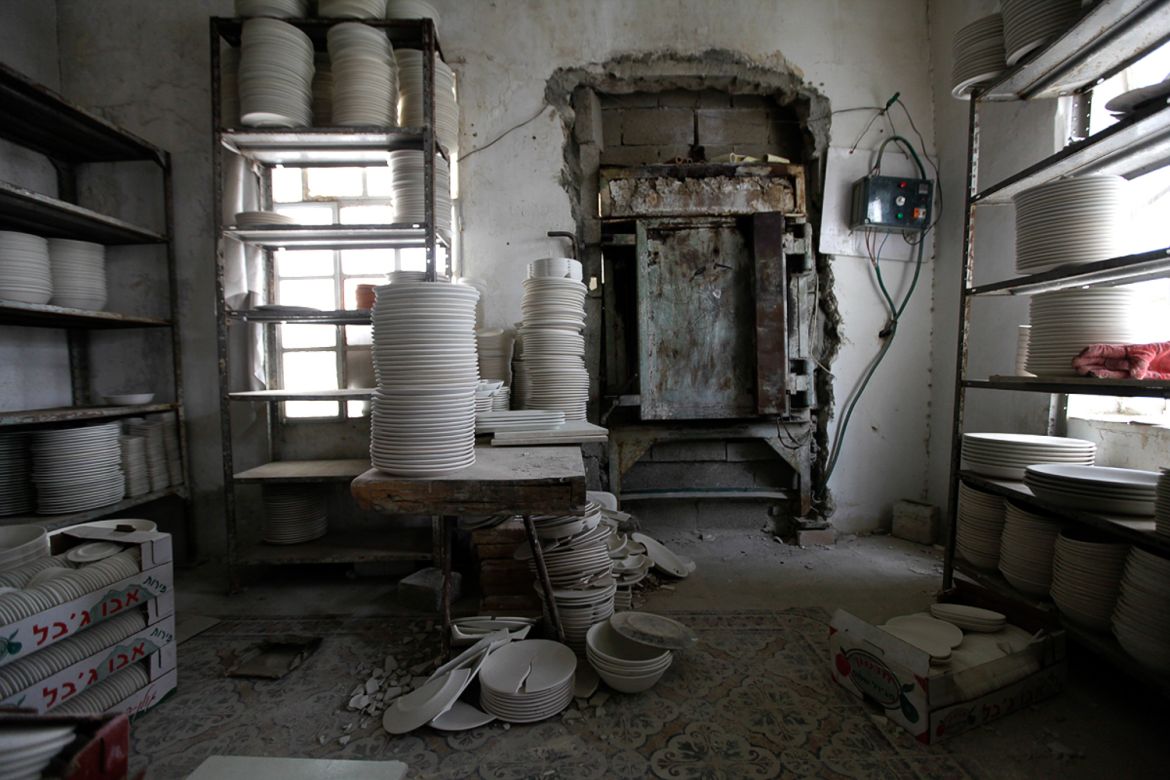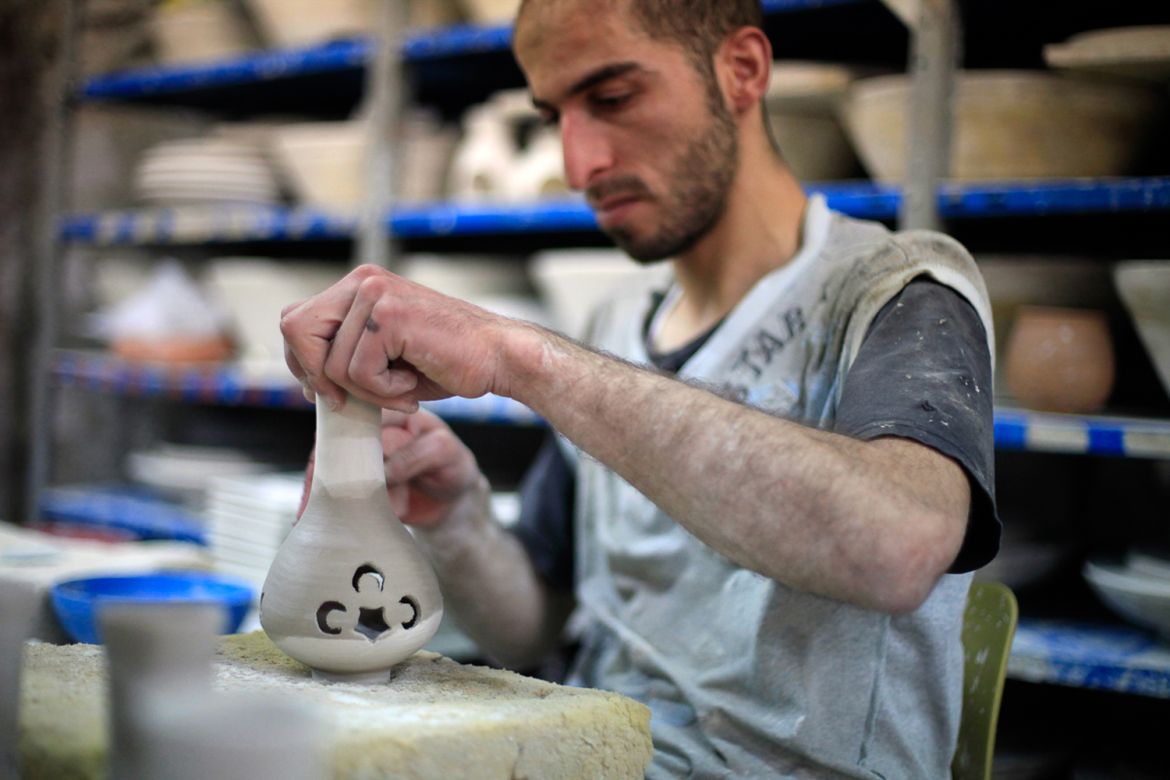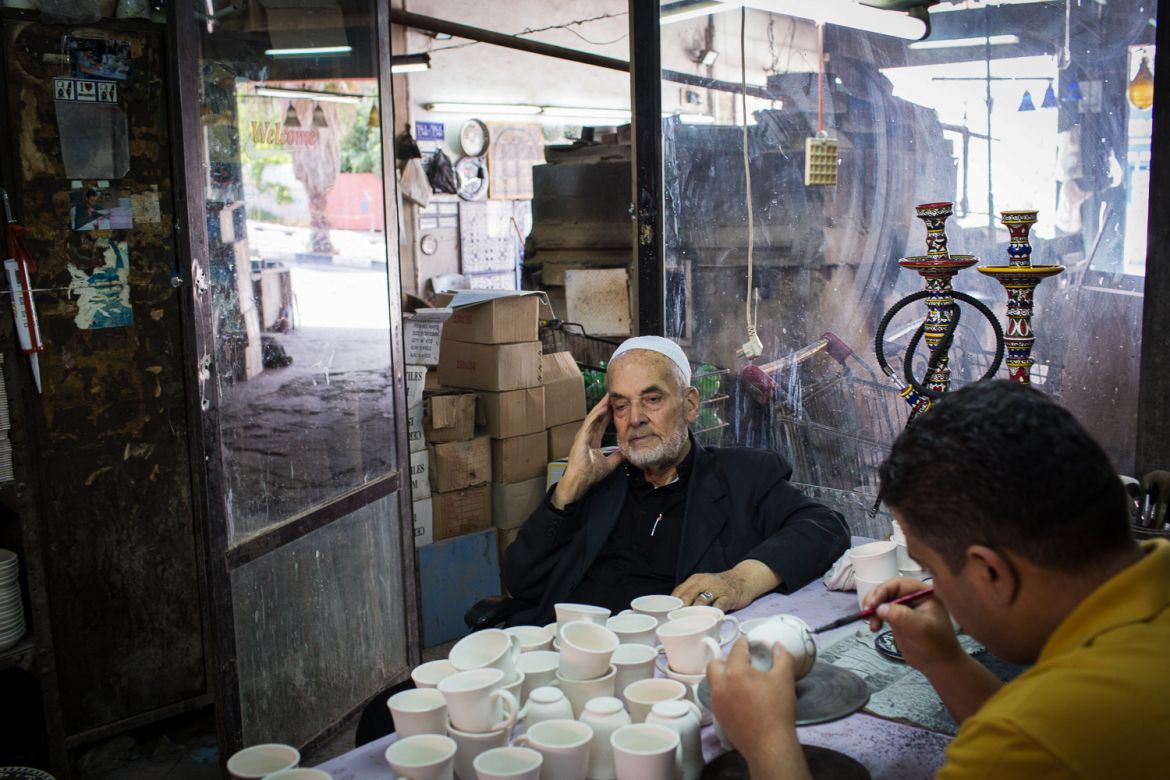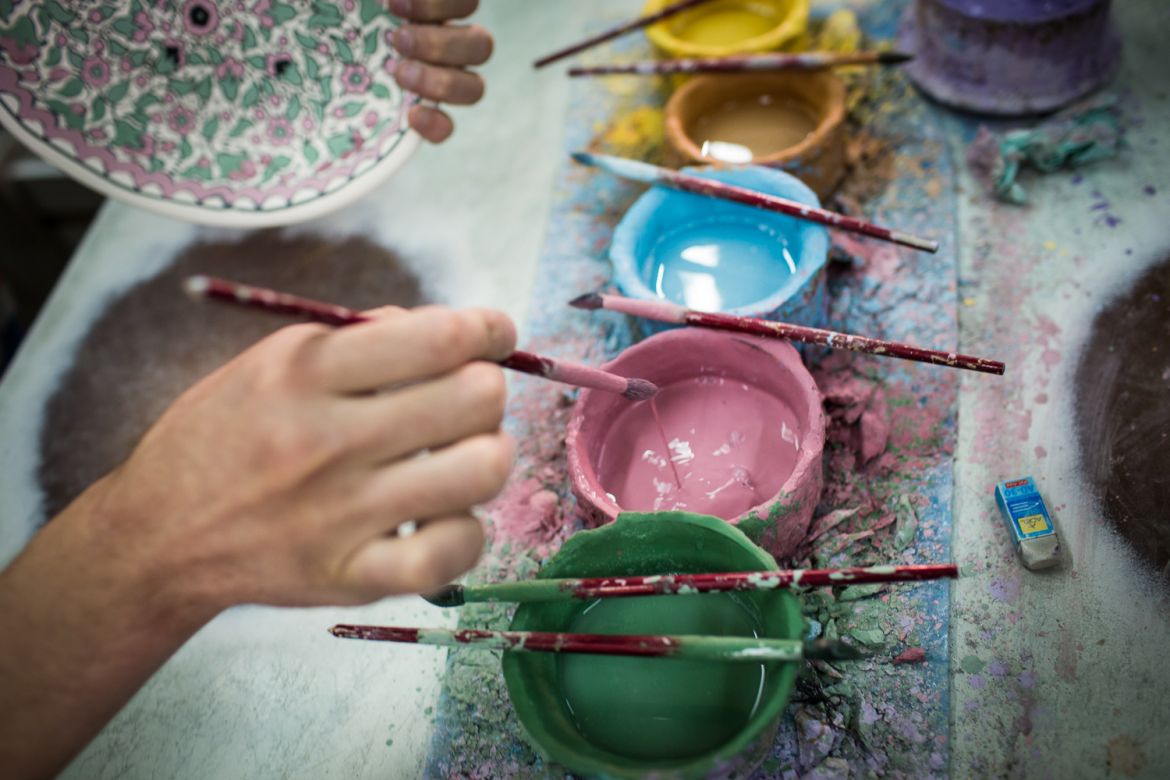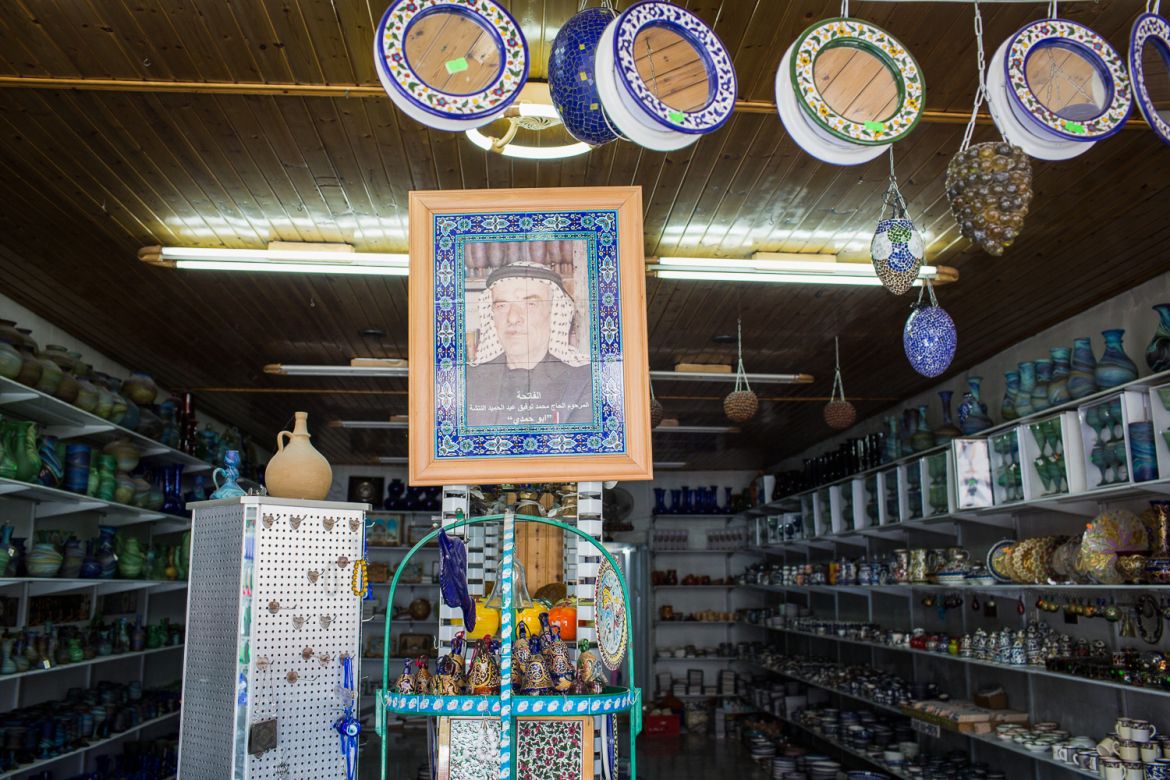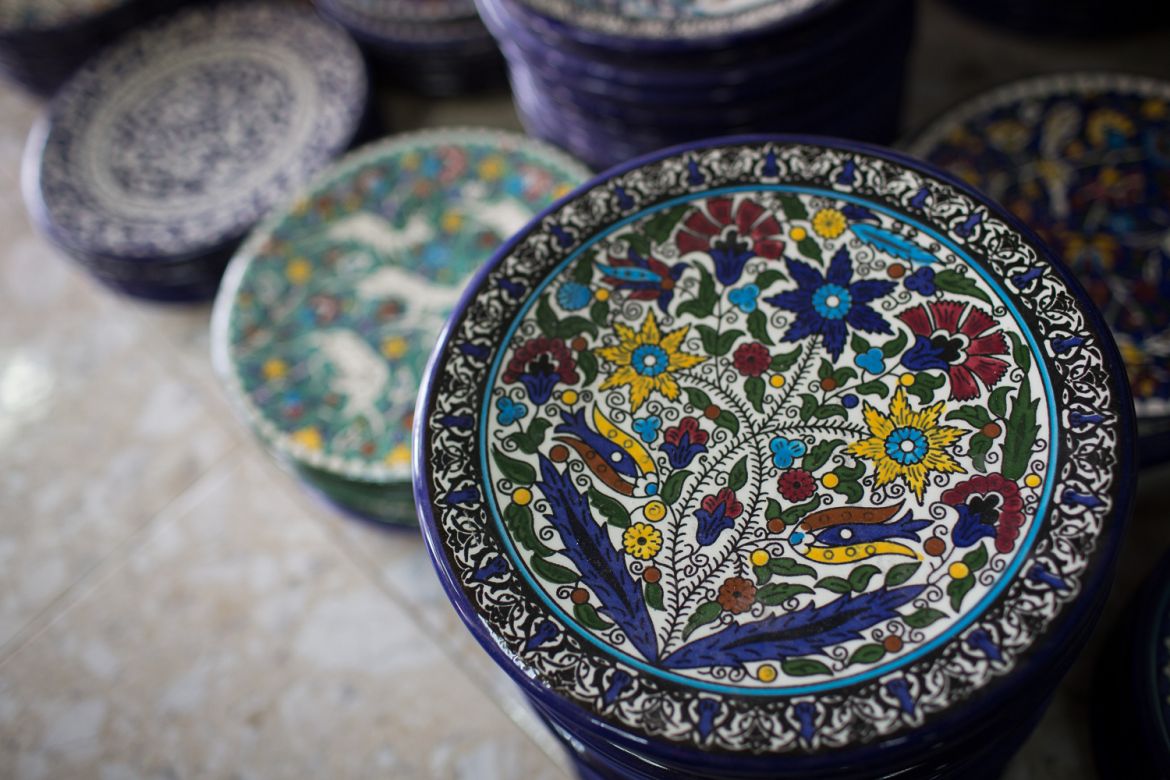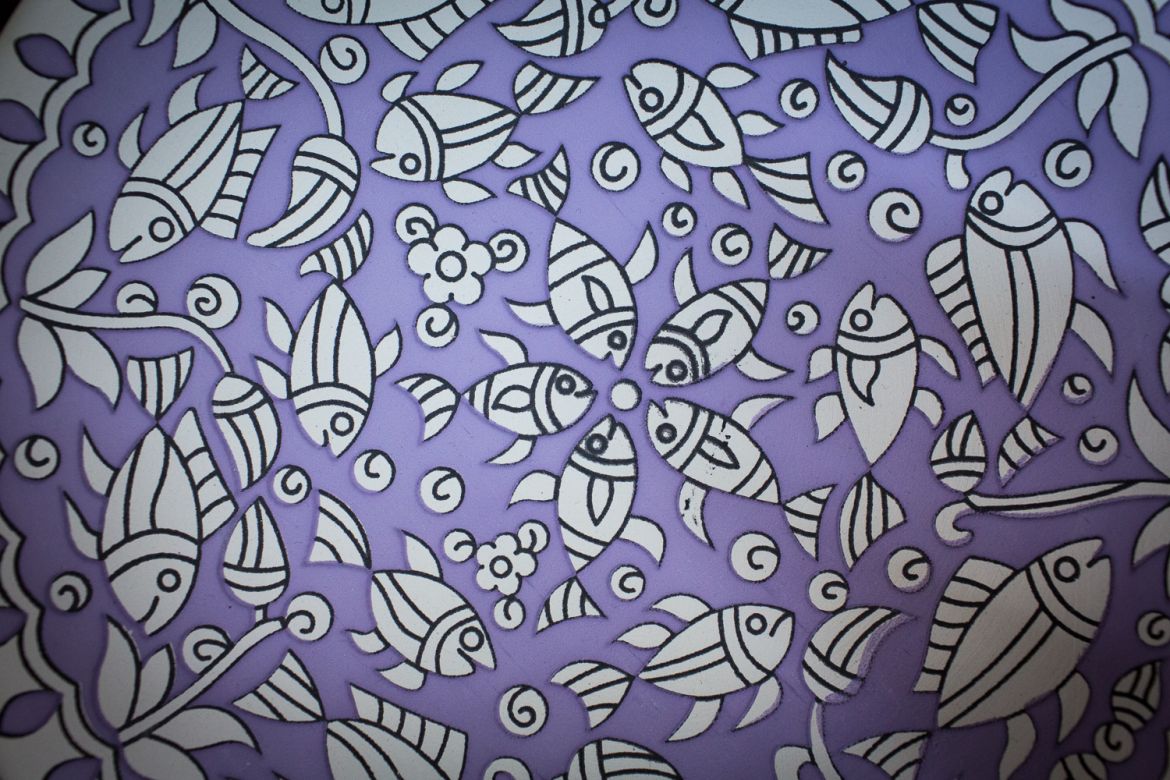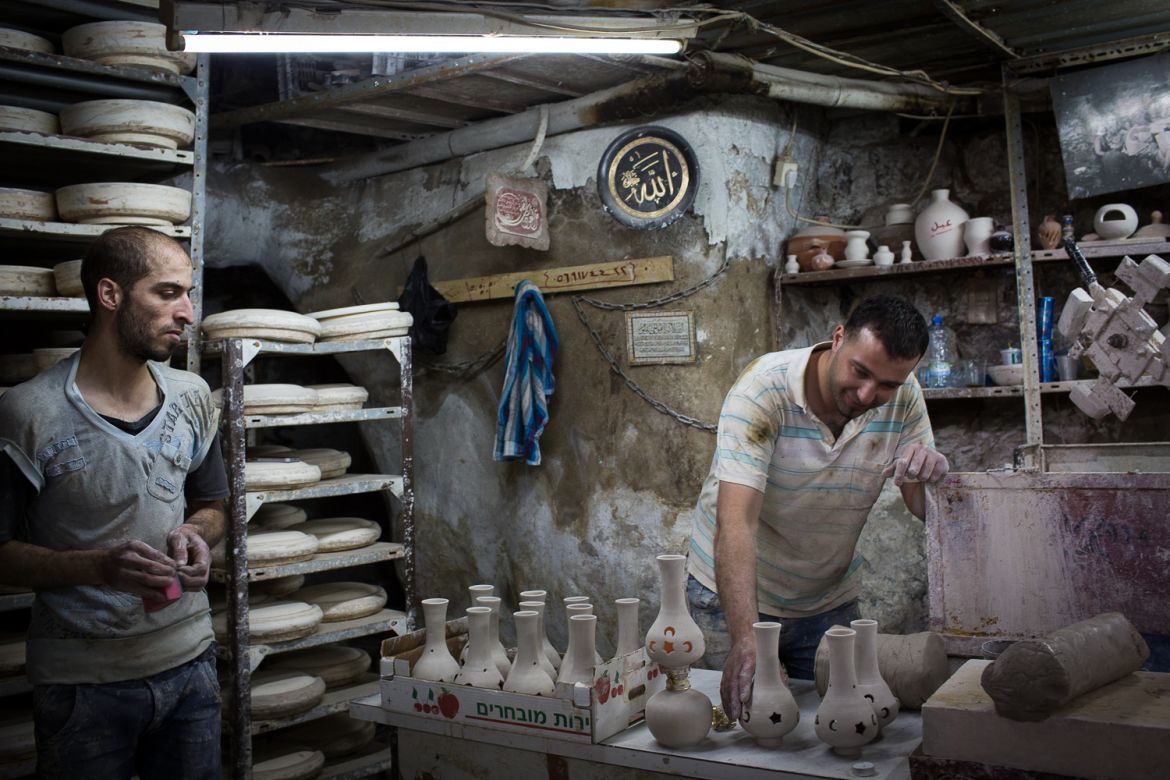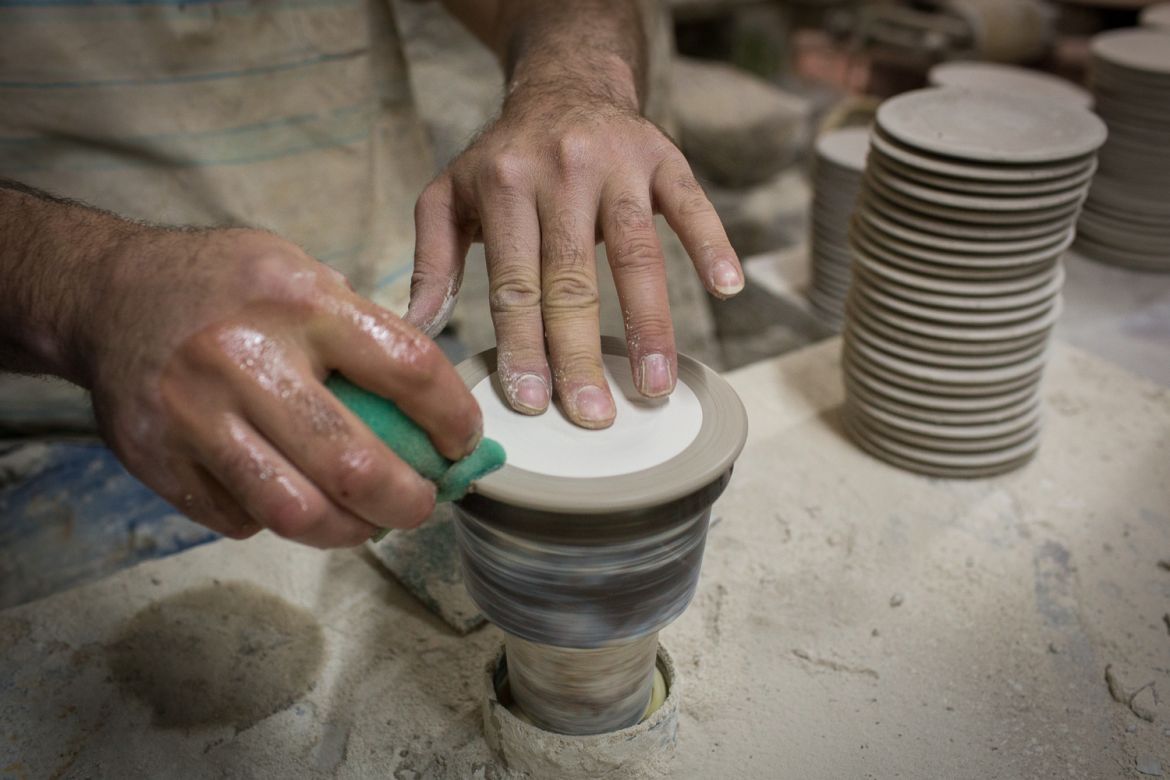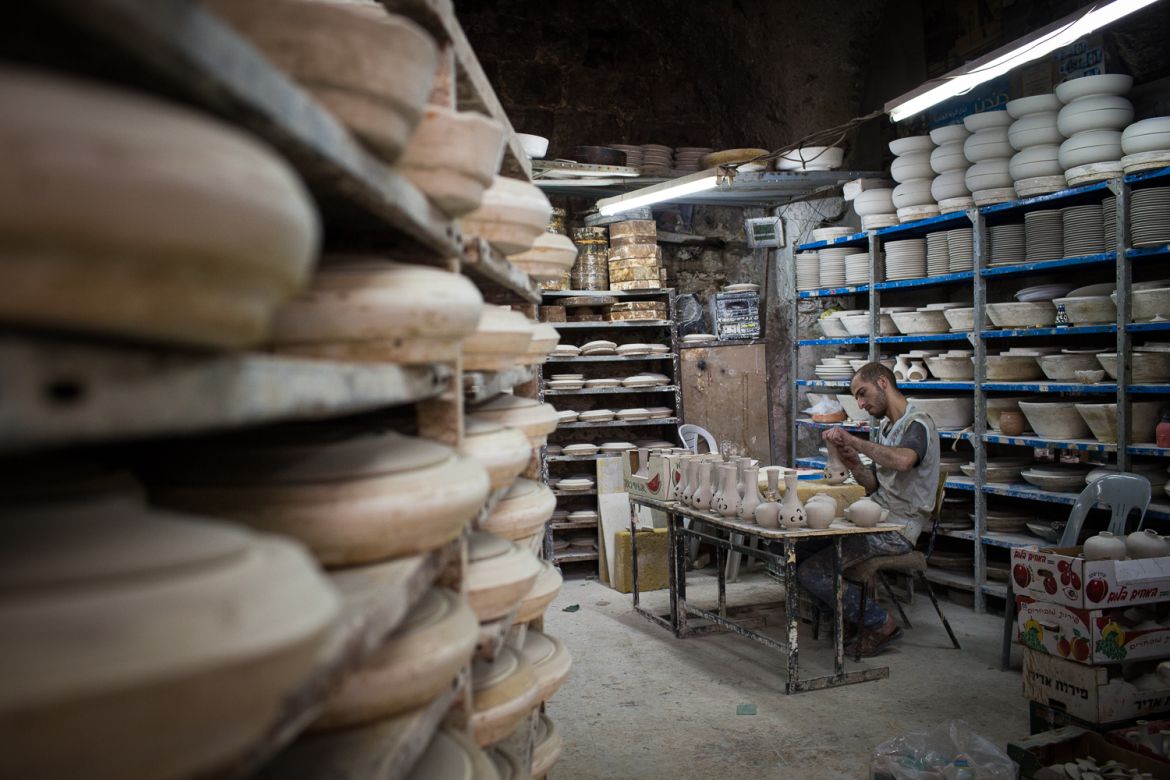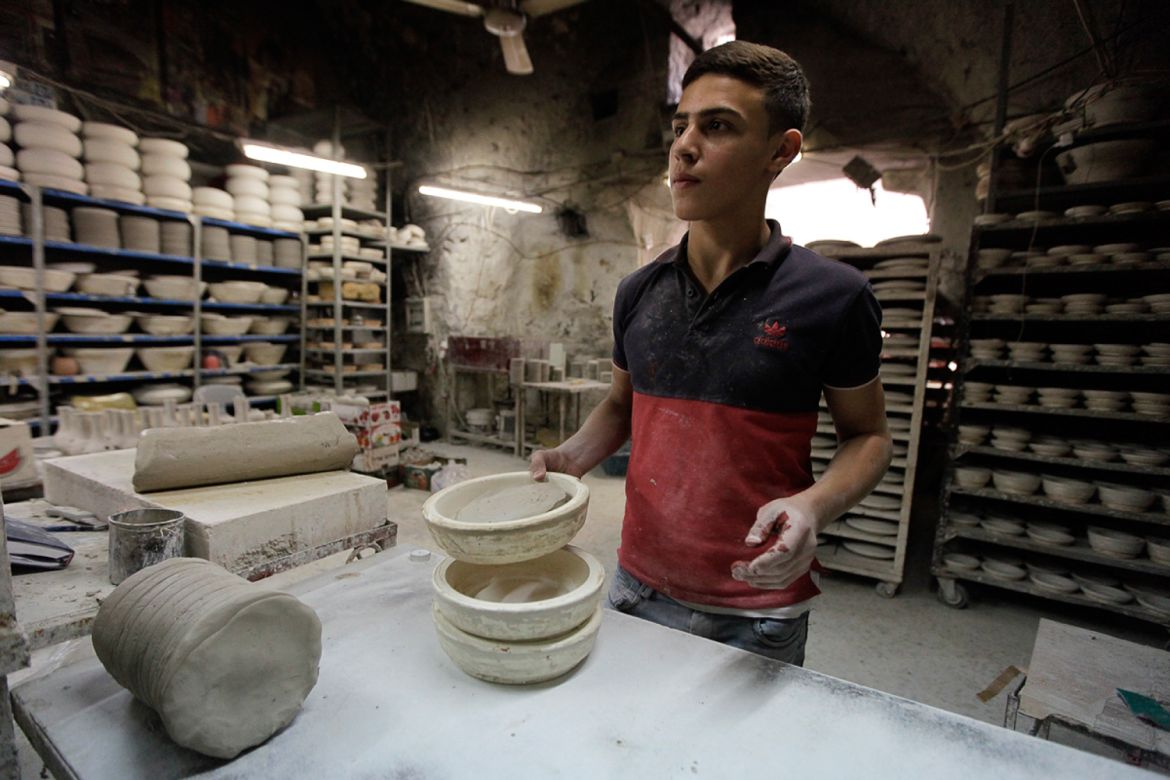In Pictures
Growing the traditional art of Palestinian ceramics
The Hebron Glass and Ceramics Factory says business today is good, thanks to both tourists and exports.

Hebron, occupied West Bank – Traditional Palestinian ceramics are produced at the Hebron Glass and Ceramics Factory, run by the Natsheh family since 1962.
The business began with three family members, and today, it employs 16 people. The production methods remain true to tradition, with a few modern updates, such as computerised pattern-making and a motor-driven pottery wheel. Customers can request special patterns or choose from hundreds of designs for hand-painted plates, vases, tiles, cups and trays.
“Fifty to 60 people know how to make these ceramics today. It is a good business, due to both tourists and exports,” Khalid al-Natsheh told Al Jazeera.
The process involves moulding each item from clay, leaving it to dry for two days, and then putting it in an electric oven for 24 hours to set. At a shop on the edge of town, the items are painted and glazed, then put back into an electric oven to set. Busloads of tourists sporadically stop outside the shop door to buy the ceramics and to photograph the Natsheh family in action.
The factory began exporting ceramics during the second Intifada, as there were no tourists, and the family had to seek new ways to sell their wares. Today, 80 percent of the factory’s products are exported to the United States, Europe, and Australia, with the rest sold locally.
